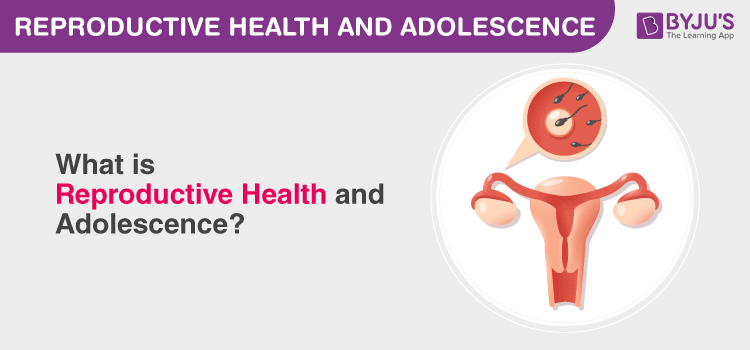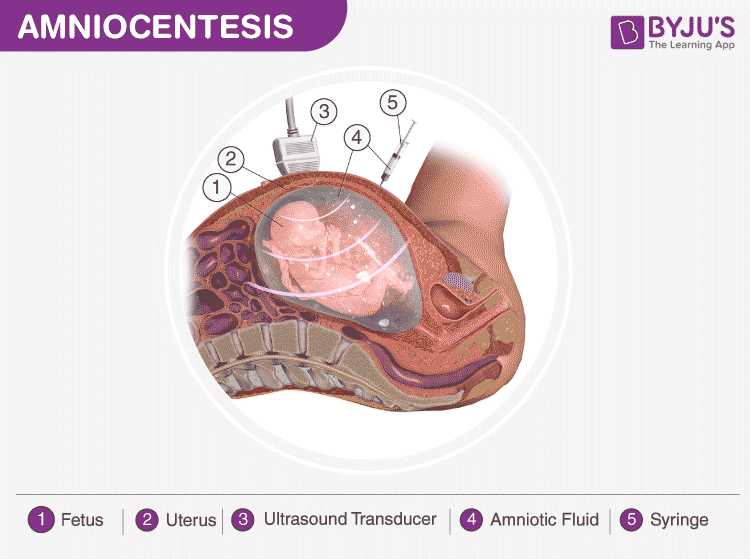Table of Contents
- What is Reproductive Health?
- Objectives of Reproductive Health
- Reproductive Health Problems
- Strategies to Improve Reproductive Health
- What is Amniocentesis Test?
What is Reproductive Health?
“Reproductive health refers to the complete physical, mental and social well-being and not simply the absence of a disease in an individual capable of reproducing.”

As per the WHO (World Health Organization), reproductive health can be defined as the total well-being and proper functioning of reproductive organs in all phases of reproduction. This includes a complete state of mental, physical, and social well-being.
There are a number of programs which are directed toward maintaining reproductive health. These programs include both small ads and a few entertainment shows telecasted on the television for promoting safe sexual habits and awareness about various sexually transmitted diseases (STDs). All these efforts by the government and NGOs aim at achieving a reproductively healthy society.
Let us understand more in detail about the reproductive health followed by its problems and its strategies.
Objectives of Reproductive Health
Following are the major objectives of reproductive health:
- To make quality maternal and reproductive health services accessible to the people living in rural areas.
- To enhance the prevention of diseases that might affect maternal health.
- To broaden the institutional and human resource capacities of local governments, health centres, communities, and men and women involved in reproductive health.
Also Read: Importance of Reproductive Health
Reproductive Health Problems
The common problems or concerns associated with reproductive health are:
- Deformities
- Overpopulation
- Sexually Transmitted Diseases
- Ill health of both mother and her baby
- Early marriages before attaining puberty
- An increased mortality rate of both mothers and Infants
Strategies to Improve Reproductive Health
Listed below are a few strategies followed to improve reproductive health:
- The introduction of sex education is one of the steps taken by the government which aims to create awareness among adolescents about safe sexual practices.
- As adolescents become eligible to reproduce, it is essential to inform them about the consequences of unsafe sexual practices and early pregnancy. It is achieved by the implementation of the ‘National Adolescent Education Program’ at various schools from classes 9th to 12th.
- People in the marriageable group are educated all about infertility, birth control methods, pregnancy, post-childbirth care of the baby and mother, etc. It is also essential to provide proper medical facilities to deal with obstacles like infertility and other reproductive difficulties.
- There are a few evil practices related to reproduction that still plague our society. Female infanticide is one such example. In order to prevent this crime, a legal ban has been put on Amniocentesis Test.
What is Amniocentesis Test?

The amniocentesis test is mainly used for the determination of the sex of the unborn baby by analyzing the chromosomal content of the amniotic fluid surrounding the fetus. This test can also be used for the early detection of chromosomal abnormalities.
All these efforts being put forward to achieve a reproductively healthy society would be worthless if we do not cooperate. Thus, with the cooperation of the society, government and other NGOs, a reproductively healthy society can be achieved.
Also Read: Amniocentesis
For more additional information about reproductive health, its objectives, problems and strategies, keep visiting BYJU’S website.
Recommended Video:



Hi, I am an avid reader of your blog! I really agree with this as I am an EMR manager for an outsourcing company.
Hey there, I love your blog! I can totally relate to this as I work as a virtual nurse for an outsourcing company.